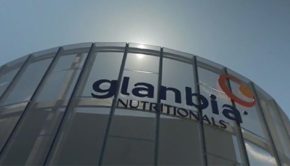Repak and retailers dismiss proposed packaging tax

A new packaging tax announced under the Government’s Programme for National Recovery 2011-2016 has been criticized by retailers and Repak
12 September 2011
A government proposed packaging tax aimed at reducing waste has been branded unnecessary by groups representing retailers and industry recycling group, Repak.
There are fears that this proposed new tax would result in an increased cost of goods, would send shoppers back across the border in search of cheaper goods and would result in a double taxation on retailers.
The packaging tax was announced as part of the Government’s Programme for National Recovery 2011-2016 and included a statement that it would “drive a waste reduction programme through an extension of the Producer Responsibility Initiative and a levy on packaging after appropriate consultation with industry.”
Retail Ireland, the IBEC group, said the levy will not lead to a reduction in packaging waste, but will instead damage competitiveness and further harm the vulnerable retail sector.
Retailers already contribute to EU Packaging Directive targets due to their Repak membership.
There are suspicions that the extra revenue gained from such a tax would go into the general exchequer rather than directly towards packaging waste.
International precedent shows that countries with schemes similar to Repak do not have packaging levies.
“A levy on top of Repak fees is double taxation. The 2009 International Review of Waste Management Policy concluded that levies on disposable materials should not be imposed unless packaging reduction targets were not met. Ireland exceeded those targets in 2001 and 2005. We hit the 2011 target of 60% recovery rate two years early in 2009. This levy is simply not necessary,” said Denihan.
The potential revenue target mentioned in the programme for government for a packaging tax was around €60-80 million.
The idea for this packaging levy is said to have come from a Comhar (the National Sustainable Development Council) workshop, around various eco taxes which suggested that a packaging tax could raise between €60-80 million per year when a Danish government representative presented on their packaging taxes.
However the Danes do not have the industry equivalent of Repak, instead they have deposits and direct government imposed packaging taxes.
It also appears that the Dutch government is planning to abolish its packaging tax due to a high administrative cost and the fact that it hasn’t raised as much money as expected.
Repak is also concerned that this would be a potential double tax on compliant participating businesses and would not be used to fund packaging recycling alone but cross subsidise the government budget.
Dr Andrew Hetherington, CEO Repak, said that this proposal is simply a way for government to raise extra revenue and not about recycling.
“The intention is to raise an additional €5 billion through various tax and revenue raising measures in 2011-12, and to bring the budgetary deficit below 3% of GDP by 2014. It is clear that the proposed Packaging Tax/Levy is part of that revenue raising mechanism.”
To date over €225 million has been invested in packaging recycling by Repak participating members such as Diageo, Unilever, Tesco, Glanbia and Musgrave.
Unilever UK & Ireland contributed to the submission made by the industry group on the proposed tax. Nicola Eagles, communications manager Ireland, Unilever said that while the company recognises that in the current economic climate there is a need for revenue-raising measures, they would question whether a packaging levy would be an appropriate part of this programme.
“In our view a packaging levy would not be appropriate because a packaging tax of the order proposed would make the total charges on packaging (tax plus the existing ‘Green Dot’ recovery and recycling fees) the highest in Europe. This would put Irish packaged goods at a severe competitive disadvantage compared with Northern Ireland and other countries, to the detriment of Irish manufacturers and traders,” said Eagles.
According to the latest Eurostat figures Ireland is ranked eighth amongst 27 European countries for packaging recycling.
The Department of the Environment is now considering responses received on the proposed levy on packaging.



 Print
Print






Fans 0
Followers